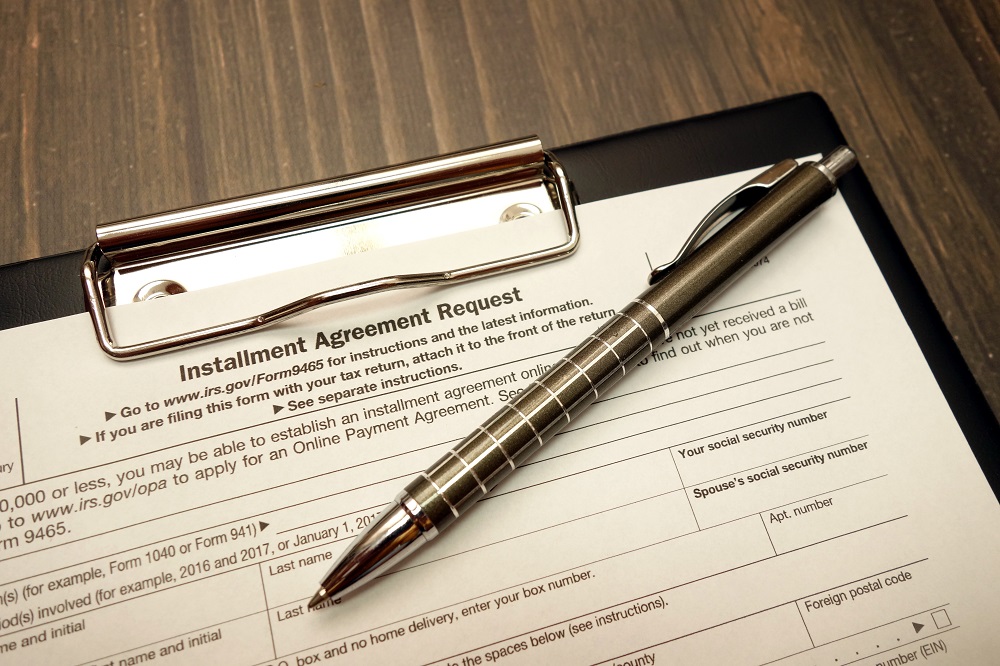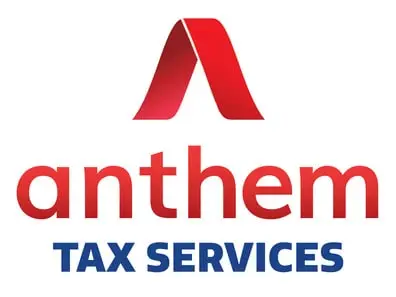
When you cannot pay the taxes you owe, you can establish an IRS installment agreement. This allows you to pay down the balance over time by establishing a payment plan with the IRS. If you are assessed taxes you are unable to pay in a future tax year, you can add that new balance to your existing agreement. This does not constitute a second agreement. You will be charged interest and penalties by the IRS on the full amount of your past-due balance until it is resolved completely.
Consolidating Tax Balances
If you already have an installment agreement and you also expect to owe taxes for the current year, you must act quickly to request a change to your existing installment agreement. Once a new tax balance is assessed by the IRS, you will be considered in default of the current agreement. You can request an amendment to the installment agreement by:
- Calling the IRS at 1-800-829-7650
- Visiting a local IRS office
- Completing Form 9465 with information about both the original agreement balance and the expected new balance
Take one of these steps before the due date for the tax year in question to avoid collections actions that will place your existing installment agreement in default.
The easiest way to amend your installment agreement is with the IRS online payment agreement tool. You can revise the type of plan, monthly payment due date, and payment amount. You might be asked to revise a proposed payment amount that is too low.
If you find that you are unable to make the minimum monthly payment when you add your new tax debt to the existing debt, you must file Form 433-F Collection Information Statement. This can qualify you for an offer in compromise, in which you settle your tax debt for less than you owe, particularly if you are unable to make a higher payment while still meeting your reasonable monthly living expenses.
To change an existing plan, you will be charged an $89 fee whether you apply in person, through the mail, by phone, or online at the IRS website. Low-income taxpayers can apply for waived or reduced fees depending on the circumstances.
Types of Installment Agreements
If you are requesting a new installment agreement, its terms will depend on the amount of tax you owe and other factors. These are the most common types of installment agreements granted by the IRS.
Guaranteed Installment Agreement
Also called a short-term installment agreement, this program is available for taxpayers who owe less than $50,000 before interest and penalties are assessed and who can pay the total balance within four months (120 days). To qualify, you must:
Have filed all required turns and paid all taxes due for the past five years
Not already be in an installment agreement
Be able to make a payment of at least the amount of your total balance with penalties and interest divided by 30
Unlike other installment agreements, this plan does not require a setup fee and will not result in a federal tax lien, which is reported to the three credit bureaus.
Streamlined Installment Agreement
With a streamlined agreement, you can qualify for an automatic payment plan without providing additional financial information. This program, sometimes called the Fresh Start program, is available for taxpayers who owe less than $50,000 and can pay their balance in full within 72 months. You must make a minimum monthly payment of $25 or the total balance with penalties and interest divided by 50, whichever amount is greater.
Although the streamlined agreement carries a setup fee depending on your monthly payment method, it does not result in a federal tax lien. For a Direct Debit Installment Agreement, in which the monthly payment is deducted from your checking account, the fee is $31 if you apply online or $107 if you apply in person, by phone, or by mail. Taxpayers whose household income is at or below 250% of the federal poverty threshold can apply to have these fees reduced or waived.
If you plan to pay with a method other than direct debit, including payroll deduction, check, money order, credit card, or online payment through the IRS website, the setup fee is $149 if you apply online or $225 if you apply in person, on the phone, or through the mail. Reduced or waived fees are available for low-income taxpayers.
Partial Payment Installment Agreement
If you can’t afford to pay your entire balance in 72 months, you can arrange for a partial payment agreement. To qualify, you must complete Form 433-F, which requires information about your assets, monthly income, and monthly expenses. The IRS will review this information and might require you to sell assets to pay back some of the debt.
Those who are approved for this type of agreement must undergo a financial review every two years. If your financial situation changes, your agreement could be changed or terminated.
Non-Streamlined Installment Agreement
Taxpayers who owe more than $50,000 can negotiate an installment plan but must submit Form 433-F. The financial information included in this document will be used to accept or reject your proposal. You must also indicate a desired monthly payment amount. With this type of agreement, you will receive a decision within several months. If your proposal or payment amount is refused, you have the right to appeal. Refusal can occur if you provided false or incomplete information, if you have demonstrated living expenses the IRS considers frivolous, or if you defaulted on an IRS installment agreement in the past.
If you can’t pay your tax debt, Anthem Tax can help. Answer a few simple questions on our contact page and we will be in touch with you shortly.
When you cannot pay the taxes you owe, you can establish an installment agreement with the IRS. This allows you to pay down the balance over time by establishing a payment plan with the IRS. If you are assessed taxes you are unable to pay in a future tax year, you can add that new balance to your existing agreement. This does not constitute a second agreement. You will be charged interest and penalties by the IRS on the full amount of your past-due balance until it is resolved completely.

IRS U.S. installment agreement request form and pen on wooden background
Consolidating Tax Balances
If you already have an installment agreement and you also expect to owe taxes for the current year, you must act quickly to request a change to your existing installment agreement. Once a new tax balance is assessed by the IRS, you will be considered in default of the current agreement. You can request an amendment to the installment agreement by:
- Calling the IRS at 1-800-829-7650
- Visiting a local IRS office
- Completing Form 9465 with information about both the original agreement balance and the expected new balance
Take one of these steps before the due date for the tax year in question to avoid collections actions that will place your existing installment agreement in default.
The easiest way to amend your installment agreement is with the IRS online payment agreement tool. You can revise the type of plan, monthly payment due date, and payment amount. You might be asked to revise a proposed payment amount that is too low.
If you find that you are unable to make the minimum monthly payment when you add your new tax debt to the existing debt, you must file Form 433-F Collection Information Statement. This can qualify you for an offer in compromise, in which you settle your tax debt for less than you owe, particularly if you are unable to make a higher payment while still meeting your reasonable monthly living expenses.
To change an existing plan, you will be charged an $89 fee whether you apply in person, through the mail, by phone, or online at the IRS website. Low-income taxpayers can apply for waived or reduced fees depending on the circumstances.
Types of Installment Agreements
If you are requesting a new installment agreement, its terms will depend on the amount of tax you owe and other factors. These are the most common types of installment agreements granted by the IRS.
Guaranteed Installment Agreement
Also called a short-term installment agreement, this program is available for taxpayers who owe less than $50,000 before interest and penalties are assessed and who can pay the total balance within four months (120 days). To qualify, you must:
Have filed all required turns and paid all taxes due for the past five years
Not already be in an installment agreement
Be able to make a payment of at least the amount of your total balance with penalties and interest divided by 30
Unlike other installment agreements, this plan does not require a setup fee and will not result in a federal tax lien, which is reported to the three credit bureaus.
Streamlined Installment Agreement
With a streamlined agreement, you can qualify for an automatic payment plan without providing additional financial information. This program, sometimes called the Fresh Start program, is available for taxpayers who owe less than $50,000 and can pay their balance in full within 72 months. You must make a minimum monthly payment of $25 or the total balance with penalties and interest divided by 50, whichever amount is greater.
Although the streamlined agreement carries a setup fee depending on your monthly payment method, it does not result in a federal tax lien. For a Direct Debit Installment Agreement, in which the monthly payment is deducted from your checking account, the fee is $31 if you apply online or $107 if you apply in person, by phone, or by mail. Taxpayers whose household income is at or below 250% of the federal poverty threshold can apply to have these fees reduced or waived.
If you plan to pay with a method other than direct debit, including payroll deduction, check, money order, credit card, or online payment through the IRS website, the setup fee is $149 if you apply online or $225 if you apply in person, on the phone, or through the mail. Reduced or waived fees are available for low-income taxpayers.
Partial Payment Installment Agreement
If you can’t afford to pay your entire balance in 72 months, you can arrange for a partial payment agreement. To qualify, you must complete Form 433-F, which requires information about your assets, monthly income, and monthly expenses. The IRS will review this information and might require you to sell assets to pay back some of the debt.
Those who are approved for this type of agreement must undergo a financial review every two years. If your financial situation changes, your agreement could be changed or terminated.
Non-Streamlined Installment Agreement
Taxpayers who owe more than $50,000 can negotiate an installment plan but must submit Form 433-F. The financial information included in this document will be used to accept or reject your proposal. You must also indicate a desired monthly payment amount. With this type of agreement, you will receive a decision within several months. If your proposal or payment amount is refused, you have the right to appeal. Refusal can occur if you provided false or incomplete information, if you have demonstrated living expenses the IRS considers frivolous, or if you defaulted on an IRS installment agreement in the past.
If you can’t pay your tax debt, Anthem Tax can help. Answer a few simple questions on our contact page and we will be in touch with you shortly.

